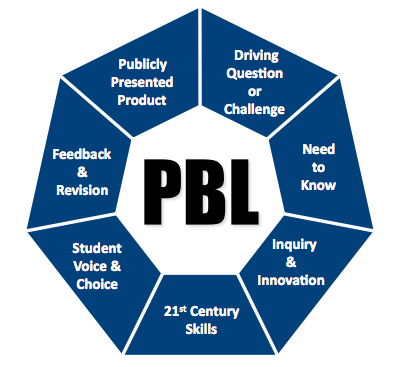Standardized Education
12 Most Unconventional Reasons to Opt Your Child Out of Standardized Testing

Inquiry and Problem Based Learning
Standardized tests and standardized teaching
I am starting a new school year with a new group of students in a public high school. One of the subjects that I teach, Biology, is a state-tested subject. As such, my students, my curriculum, my teaching are all going to be scrutinized by my administration, my community, and the state. The standardized test is the primary tool used by the state to develop a "school report card." I can't say that I object to the practice, though I will put forth some of my concerns, but it does make me consider if our methods are actually going to help us achieve our goals.
Why standardized tests? Ostensibly, the need for standardized tests is to make student performance something that can be quantified (uniformly and expediently) and then compared. As an employer or an institution of higher education, the supposed quality of student that is being produced by any specific school be quantified and compared. The practice is supposed to give you faith in your public school system. Using the abundant statistics that are produced after each round of standardized tests then the community, state, or concerned parent can determine if a school district is "good" or "bad."
Why, primarily, multiple choice tests? This answer is one of measurement and logistics. The multiple choice test is the fastest, easiest, and most objective scoring method that we have produced. Anything written by the student opens up a Pandora's box of possible problems from the man-power to read it (each response read by multiple readers), to the difficulty in making scoring uniform and objective, to difficulty reading the handwriting at all. Granted, this is a simplified explanation, but the essence of the problem is there.
How does it affect teaching? I remember my first principal pointing out that, when we design our lesson, we design it around the elements that we want our students to learn in that section. Our state education agency has designed a tool (a standardized test) that will be used to measure if we have covered the appropriate curriculum in a satisfactory manner. It becomes logical then, by his reasoning, that we would be sure to teach not only what was to be included on the test but also help our students learn how to take such a test. As much as I have heard complaints about teachers only "teaching the test" I find it difficult to argue with his logic. When I look at how much material I have to cover, according to the state, in one year of Biology then I find there is often little room for teaching more than is on the test. (There are notable exceptions, for instance, when you have a classroom full of students that are actually performing at "grade level" then you can and are expected to enrich the baseline curriculum.)
How does it look in the classroom? For a majority of the teachers that I have come in contact with, little has changed in the method of delivery in the classroom. Even the most creative of teachers, the most engaging, the most technologically savvy teachers cannot escape the necessities imposed by a standardized test. It seems to come out something like this: Our students are going to be put in a situation where they will have to remember significant portions of the material covered during the year and be able to communicate that "learning" on a primarily multiple choice test. They will do this without the benefit of others or any eternal resources in a rigidly controlled testing environment. In addition, failure to perform well will often not have standardized consequences - but that is a discussion for another time. As a result, in our classroom we routinely make our students practice this same scenario: multiple choice test full of Google-able answers that they must take alone, without access to external resources, in a rigidly controlled environment. Sound effective? Engaging? What, when you think about it, are we really measuring?
Please allow me to take a step back and approach this from the perspective of the employer. Specifically, I will look at my own employer. I have the responsibility of three subjects this year, the tested Biology subject, and Advanced Placement Biology that faces a similar problem, and a newer non-tested Career and Technology Class (or CATE class.) The newest class is one that I have never taught before. The state and my employer required that I, first, earn a certification to teach the class. I love being a student so this was hardly an imposition, but I did notice that, as an adult student, I am expected to collaborate with the other students and to use a plethora of online resources. These resources were an odd jumble of highly reliable, questionable, and the inevitable broken or lost links that required quite a bit of critical thinking and technological "expertise" in order for me to pull out the relevant information.
Next, in planning and preparing for this class, one of the first things I do is begin networking for others that can help me, teach me, and donate developed materials! As a wise teacher once told me "It is not necessary to reinvent the wheel." In fact, I think teachers are often some of the best internet researchers for just this reason: we will find support materials! Now, the connection I am trying to make may not be apparent so please allow some clarification, as an employee I am expected to think for myself, work with others, and use all available resources in order to make my performance as effective as possible. At no point am I expected to memorize everything (much less esoteric bits of random information), nor am I expected to work alone, and I am certainly not expected to refrain from using every resource available. This is even more alarming to me because I am an employee of the very institution that is supposed to help produce more employable people.
Stuart Firestein - In Pursuit of Ignorance
Interrupting the Data Factory: The CTU vs. Standardized Testing

TED Talk - Finding Inspiration and Liberation through Inquiry Based Education: Brad Chumrau
So, if our goal is to create productive, responsible, employable citizens (and I know this is an assumption on my part - but I feel it is a fair assumption) then it is necessary to ask if our methods are going to produce what we intend to produce? We have taken the reality of a multidimensional person and narrowed it down to one dimension - the ability to regurgitate memorized information on command. It seems to me that, at best, this may measure the students potential to do some of the same activity again in academia. We are not measuring their ability to use that information in any logical or meaningful way. To use parallel thinking, if we practice standardized tests in order to prepare students to take standardized tests then why don't we practice real-world challenges to help prepare students for the real world?
I was taught that it is bad form to pose a problem without also posing a solution so I will attempt to offer, if not solutions, at least some steps in the right direction. First, there are many teachers out there that already realize this problem and attempt to address the valuable skills of collaboration and teamwork with group projects or other alternative assessments in their teaching. Performance or standards-based grading systems need to part of teacher training and practices. In addition, mixed in among the hundreds of hours of professional development I have both enjoyed and labored through I have begun to see a push to change the way we teach. There is a push towards what is called "inquiry-based learning" instead of the historical "stand and deliver" method. (You may have heard the catch phrase of "a guide on the side instead of a sage on the stage.") However, we are a far cry from making the theory a practice due to a lack of appropriate modeling. If we want our students to do something then we have to show them how and, as teachers, we have the same need. There is a need for those with effective alternatives to visit real classrooms and help model real change. Professional development needs to come to the classroom on a regular basis and from an impartial source (not an evaluator.)
As for the testing, the need to evaluate our school systems is likely to remain. I cannot say that standardized testing is going to disappear at any point in the foreseeable future. That said, my husband posed a different testing scenario that I found rather intriguing. I would like to share it with you and see how many holes we can find (and maybe fix or tweak) in this scenario. Imagine a standardized test that places a student in front of a computer with complete access to the internet. The test itself can still be multiple choice with Google-able answers but it would need to be long enough that students would not be expected to complete it in the timed testing period. There should also be multiple versions of this test and it should cover multiple subjects. Then - let the students tackle the test. Allow no penalty for skipped or wrong answers on the test- only add points for correct answers. This would create a situation in which the kids would be expected to show their skill at finding reliable and accurate information in a timely manner. It would force kids that click the first response Google brings up to double check the source for accuracy and reliability. You would still have kids that can regurgitate random bits of information and those kids would have an understandable edge. However, we would also be training our kids how to gain information for themselves, how to fact-check, and how to do so in a timely manner - all of which are useful skills in real life and most work environments.
I don't have a magic bullet or a cure-all for our education system. I can say with certainty that our society, our environment, has changed and our education system needs to change with it.
Project-Based Learning: Success Start to Finish

© 2014 SommerHope








